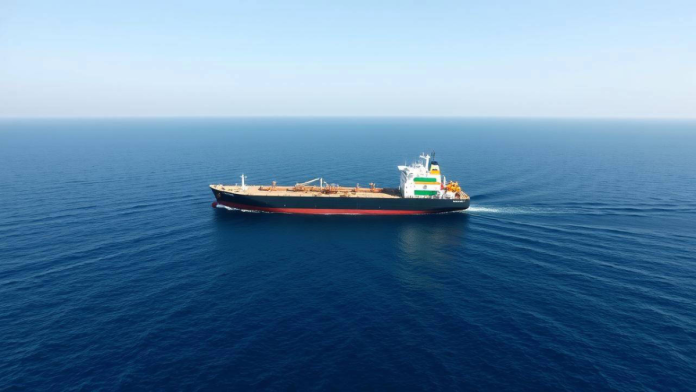In a rare move, India has sent a shipment of diesel to China, marking the first such delivery in more than two years. The cargo, loaded at Nayara Energy’s Vadinar terminal in western India, comes from one of the country’s largest private refineries, which has links to Russian oil interests through shareholder Rosneft.
The shipment left port on July 18 carrying around 496,000 barrels of ultra-low sulfur diesel, according to data from Kpler. This type of diesel is cleaner and produces less pollution compared to regular fuel. The journey began just hours before the European Union (EU) announced new sanctions targeting companies with ties to Russian oil.
This delivery is notable because India usually sends most of its diesel to countries in Southeast Asia, the Middle East, or Africa. Sending fuel to China has been uncommon since 2021. The last recorded shipment of diesel from India to China was in April of that year.
The move comes after recent improvements in diplomatic relations between India and China, which had been strained in the past. For the first time in years, a major shipment of this kind is making its way to Chinese shores.
A Voyage with Unexpected Delays
The diesel was transported by the vessel EM Zenith. Initially, the tanker was headed to Malaysia. However, while passing through the Strait of Malacca — one of the world’s busiest shipping lanes — the ship changed its course.
Transactions for Nayara Energy halted as India’s largest bank falls under tariff pressure
It anchored for about 12 days after EU sanctions caused disruptions for several shipments from Nayara Energy. Multiple vessels carrying fuel from the refinery faced delays as buyers and shipping agents dealt with the legal and financial complications created by the sanctions.
The sanctions are part of the EU’s continued efforts to limit the trade of Russian oil. Because Nayara Energy has Rosneft as a major shareholder, it is directly affected by these measures. While the EU restrictions do not ban fuel sales to all countries, they make it harder for the company to operate freely in the global market.
After its delay, the EM Zenith updated its route and is now heading to Zhoushan, a major port city in China. This change in destination reflects Nayara Energy’s effort to find alternative buyers quickly when the original plan was disrupted.
Nayara Energy turns to Indian government as EU sanctions cause shipping crisis
Sanctions Create Payment and Supply Challenges
The EU’s latest sanctions have not only slowed down shipments but also complicated payments for Nayara Energy. Buyers are now being asked to pay upfront or provide letters of credit before the fuel is even loaded onto ships. This is a big change from the usual trade practices, where payments are often settled after the cargo reaches its destination.
These payment issues, combined with problems in sourcing crude oil due to restrictions, have forced Nayara Energy to reduce its output at the Vadinar plant. Crude oil, the raw material used to make diesel, has been harder to obtain as shipping routes and suppliers face more checks and limitations.
Nayara Energy is one of the largest refiners in India and plays a key role in the country’s fuel exports. Any disruption to its operations can affect trade patterns and supply to various countries. With sanctions creating uncertainty, finding buyers in non-EU markets like China has become an important strategy for keeping operations running.
This particular shipment is significant not just for its size but also for what it represents — a rare energy trade between India and China at a time when global fuel markets are being reshaped by geopolitical tensions and trade restrictions.


